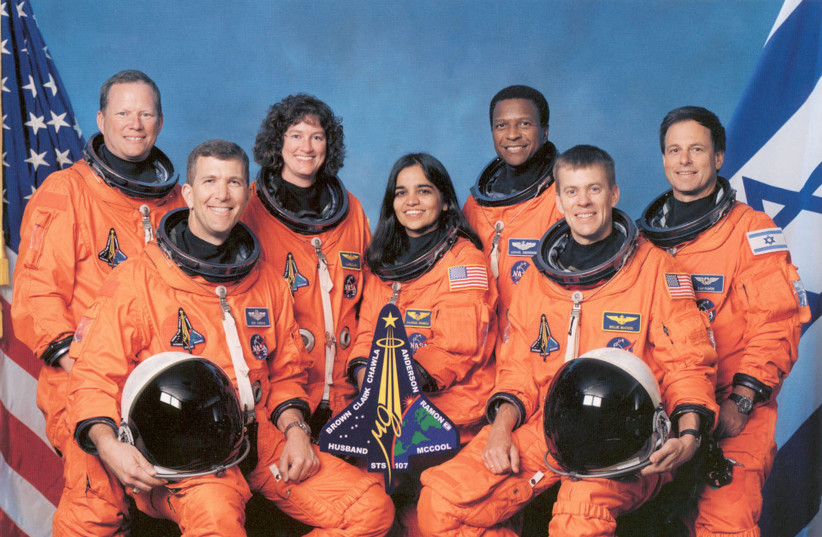February 1, 2022 marks 19 years since the Columbia space shuttle disaster, which saw NASA's titular space shuttle explode upon reentry, killing all seven astronauts on board, including Israel's first-ever astronaut, Ilan Ramon.
The shuttle had launched on its 28th mission, STS-107, which saw the astronauts head to the International Space Station and conduct a number of experiments.
However, during its launch, the space shuttle orbiter's left wing was damaged when part of the polyurethane foam insulation on the external tank broke off.
Investigation at the time was limited due to a number of reasons, such as communication issues with NASA management and engineers, as well as with the Defense Department. This, in part, was attributed to a particular mindset common among many in NASA at the time, even among astronauts themselves.
As revealed by retired NASA official Wayne Hale in 2013 on his blog, citing NASA mission operations director John C. Harpold, the mindset at the time could be described as such: "You know, there is nothing we can do about damage to the [thermal protection system]. If it has been damaged it's probably better not to know. I think the crew would rather not know. Don't you think it would be better for them to have a happy successful flight and die unexpectedly during entry than to stay on orbit, knowing that there was nothing to be done until the air ran out?"

Hale continued: "I was hard-pressed to disagree. That mindset was widespread. Astronauts agreed. So don’t blame an individual; look for the organizational factors that lead to that kind of mindset. Don’t let them in your organization. After the accident, when we were reconstituting the Mission Management Team, my words to them were 'We are never ever going to say that there is nothing we can do.' That is hindsight. That is the lesson."
Ultimately, regardless of the reason why the problem was not solved.
Tragically, the damage sustained by the shuttle during launch ultimately led to the craft's destruction, killing all on board, with the sole exception of a group of small worms living in petrie dishes that actually managed to survive the crash.
The incident was the second to ever befall a NASA space shuttle, following the fate of the Challenger in 1986. The incident caused NASA to reexamine its policies, including those regarding space shuttles, and delayed further construction of the International Space Station.
For Israel, though, the disaster also saw the tragic fate of the first Israeli to ever leave the Earth's surface.
Ramon was born in Israel to a family who had suffered during the Holocaust, his mother and grandmother having been in Auschwitz. He had joined the Israeli Air Force and achieved the rank of colonel, and served during the Yom Kippur War and First Lebanon War, as well as being the youngest pilot involved in Operation Cobra when the IDF destroyed Iraq's nuclear reactor.
Though not particularly observant as a Jew himself, Ramon made sure to maintain observance while in space, having kept kosher and observing Shabbat.
During his time in space, Ramon carried with him a miniature Torah scroll, a barbed-wire mezuzah as a symbol of the Holocaust and a dollar of the Lubavitcher Rebbe.
Miraculously, 37 pages of Ramon's diary were recovered from the wreck of the Columbia. Despite being exposed to the explosion, the cold of the atmosphere and various insects and microbes, the pages survived.
In his honor, a foundation was set up called the Ramon Foundation, which seeks to help assist space entrepreneurs and ventures in Israel and establish a network of sorts for the space industry in Israel and abroad. To this day, they are still a major force in Israel's space sector, routinely working with the Israeli Space Agency (ISA) and holding the annual Ilan Ramon Conference.
The Ramon Foundation also worked with the Israeli government to launch the Rakia mission, Israel's next official foray into space with an astronaut.
The astronaut in question, Eitan Stibbe, who served under Ramon in the IAF, will be the second Israeli to ever head to space and will study 35 different experiments onboard the International Space Station.
